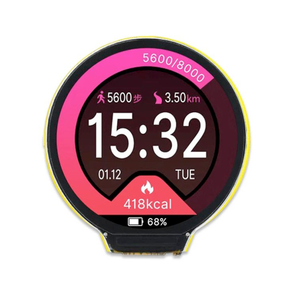
CYD ESP32-2424S012 is a development board based on the ESP32C3 microcontroller using XTENSA architecture.
This board features a maximum CPU frequency of 240 MHz and 32Mbit flash memory.
About CYD ESP32-2424S012
🚀 The CYD ESP32-2424S012 is a budget-friendly ESP32-based development board, commonly referred to as a Cheap Yellow Display (CYD). It features integrated WiFi, Bluetooth 4.2, and a range of I/O interfaces, making it an excellent choice for affordable IoT and embedded display projects. ⚡
📡 With support for 802.11 B/G/N WiFi and Bluetooth 4.2 (BLE), this board is well-suited for wireless applications.
💾 Equipped with 32Mbit SPI Flash, multiple ADC, DAC, I2C, SPI, UART, PWM, and I2S interfaces, it offers a versatile platform for various embedded projects.
Where to Buy CYD ESP32-2424S012
Prices are subject to change. We earn from qualifying purchases as an Amazon Associate.
📋 Technical Specifications
Complete technical specification details for CYD ESP32-2424S012
🖥️ Display
🛰️ Connectivity
🧠 Microcontroller
✨ Features & Pins
CYD ESP32-2424S012 Board Dimensions
Physical measurements for CYD ESP32-2424S012
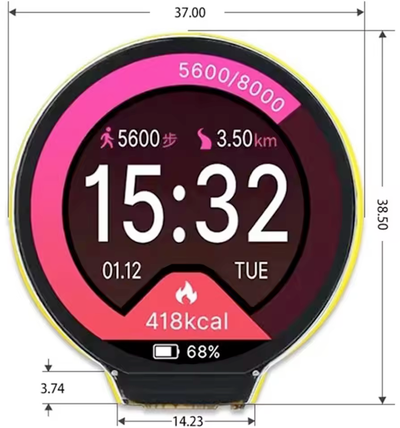
CYD ESP32-2424S012 Pinout Diagram
Complete pin reference for CYD ESP32-2424S012
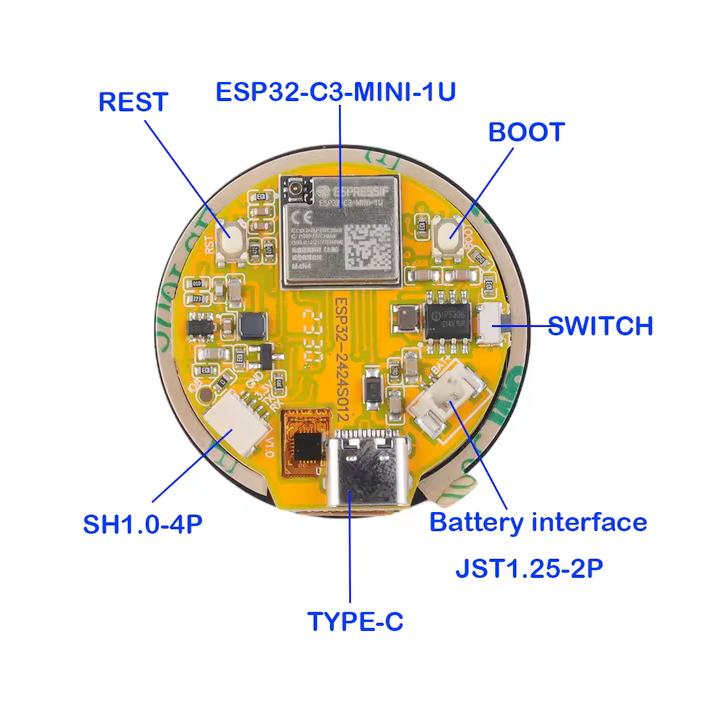
✅ Safe Pins to Use
These pins are safe for general GPIO usage without boot or system conflicts
💡 Why Are These Pins Safe?
⚠️ Pins to Avoid or Use with Caution
Reserved for critical functions. Misuse may cause boot failures, programming issues, or system conflicts.
Boot behavior & flash voltage
Low-level debugging interface
USB Serial/JTAG communication
Memory & PSRAM connections
Debugging & firmware uploads
| PIN | Label | Why Avoid | Type |
|---|---|---|---|
| IO2 | GPIO2 | Must be held high during boot (if low on reset, normal flash boot may fail) | 🛠️ Strapping |
| IO16 | SPID | Used for SPI flash data transfer (data-out from flash); not available for other functions | ⚡ Flash |
| IO17 | SPIQ | Used for SPI flash data transfer (data-in to flash); not available for other functions | ⚡ Flash |
| IO18 | USB_D- | By default connected to on-chip USB Serial/JTAG controller; to use as GPIO it must be reconfigured from its USB function | 🔌 USB |
| IO19 | USB_D+ | By default connected to on-chip USB Serial/JTAG controller; not available for GPIO use unless USB functionality is disabled or remapped | 🔌 USB |
| IO21 | U0TXD | Used as UART0 transmit (console/bootloader); repurposing may disable serial console output and printing | 📡 UART |
Useful Links
Datasheets and resources for CYD ESP32-2424S012
CYD ESP32-2424S012 Custom Pin Mapping
Pin configuration and GPIO mapping for CYD ESP32-2424S012
| Pin | Function | ESP Pin | I/O Type | Description |
|---|---|---|---|---|
| 1 | 3V3 | 3.3V | POWER OUTPUT | 3.3V power output |
| 2 | GND | GND | POWER GROUND | Ground connection |
| 3 | 5V | 5V | POWER INPUT | 5V power input |
| 4 | IO1 | GPIO1 | BIDIRECTIONAL | GPIO, ADC, I2C |
| 5 | IO2 | GPIO2 | BIDIRECTIONAL | GPIO, ADC |
| 6 | IO3 | GPIO3 | BIDIRECTIONAL | GPIO, ADC |
| 7 | IO16 | SPI_CS | BIDIRECTIONAL | GPIO, SPI Chip Select |
| 8 | IO17 | SPI_D | BIDIRECTIONAL | GPIO, SPI Data |
| 9 | IO18 | SPI_CLK | BIDIRECTIONAL | GPIO, SPI Clock |
| 10 | IO19 | SPI_Q | BIDIRECTIONAL | GPIO, SPI Q |
| 11 | IO21 | UART_TX | OUTPUT | GPIO, UART TX |
| 12 | IO22 | UART_RX | INPUT | GPIO, UART RX |
Default Tools & Configuration
Build and upload settings for CYD ESP32-2424S012
| Setting | Value |
|---|---|
| Bootloader tool | esptool_py |
| Uploader tool | esptool_py |
| Network uploader tool | esp_ota |
| Bootloader address | 0x1000 |
| Flash mode | dio |
| Boot mode | qio |
| Maximum upload size | 1280 KB (1310720 bytes) |
| Maximum data size | 320 KB (327680 bytes) |
The CYD ESP32-2424S012 uses esptool_py for uploads , esp_ota for OTA updates, and esptool_py bootloader at 0x1000.
Flash mode: dio | Boot mode: qio
Max sketch size: 1280 KB | Max data size: 320 KB
Similar Boards
Other development boards with ESP32C3 microcontroller
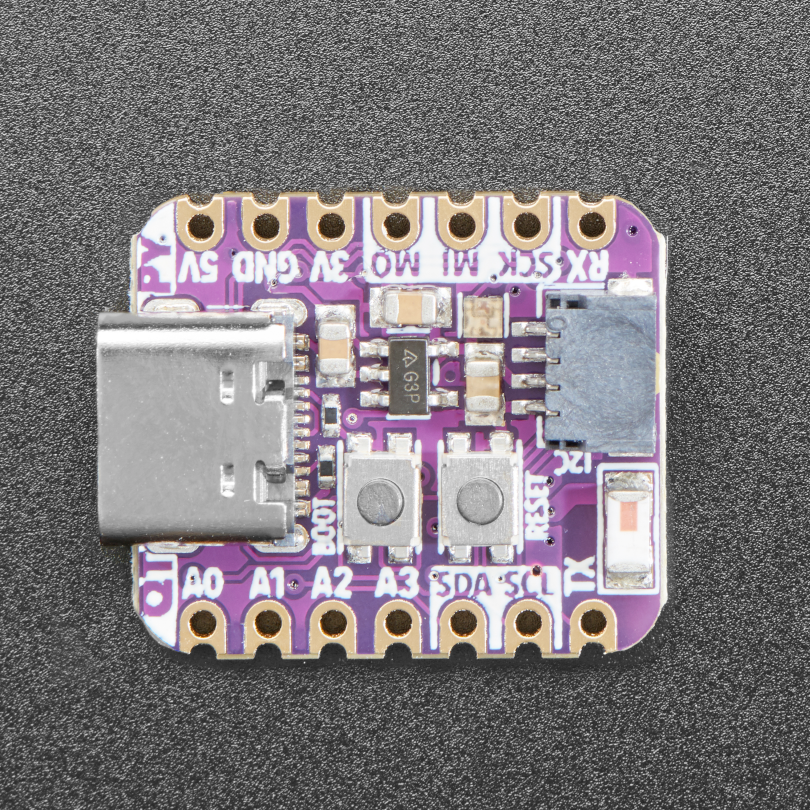
Adafruit QT Py ESP32-C3
Adafruit QT Py ESP32-C3 development board is based on esp32c3 microcontroller and uses riscv32 architecture.
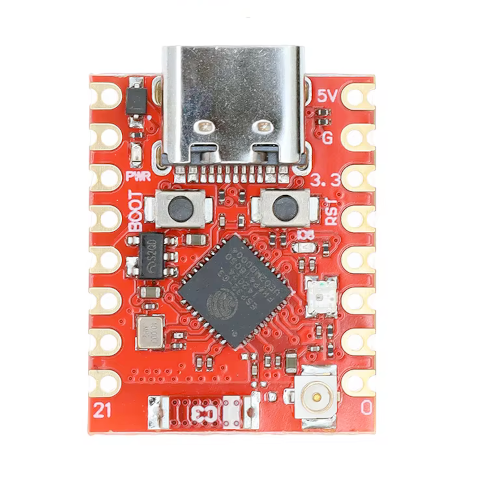
ESP32 C3 Super Mini Plus
ESP32 C3 Super Mini Plus development board is based on esp32c3 microcontroller and uses riscv32 architecture.
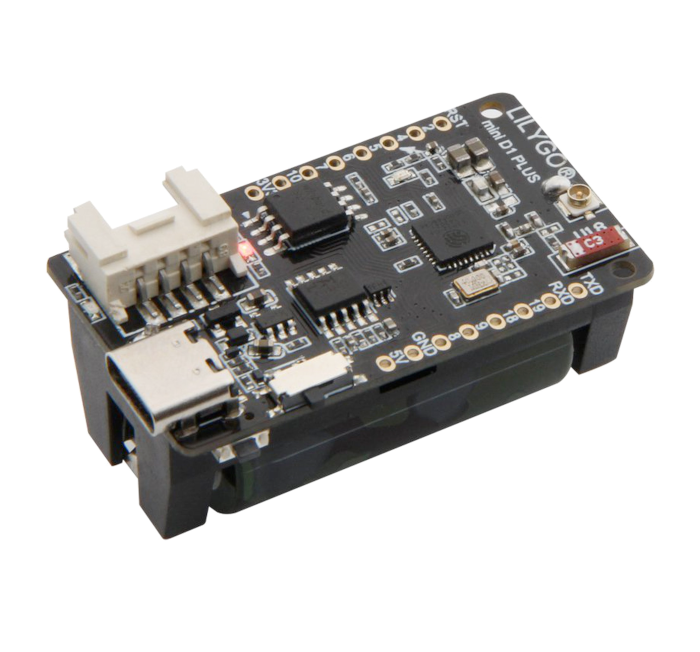
TTGO T-OI PLUS RISC-V ESP32-C3
TTGO T-OI PLUS RISC-V ESP32-C3 development board is based on esp32c3 microcontroller and uses riscv32...


